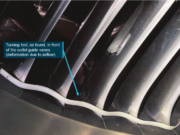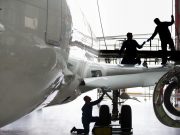Citing more than 100 accidents in which worn fuel selectors have led to fuel starvation and loss of engine power in small airplanes, the U.S. National Transportation Safety Board (NTSB) on Thursday issued safety alerts outlining actions to be taken by pilots and mechanics to alleviate the problem.
“As fuel selectors wear, the fuel selector handles may be difficult or even impossible to turn,” the NTSB said in Safety Alerts 075 and 076. “It a pilot applies too much force, the internal components can fracture and obstruct the fuel flow, resulting in a total loss of engine power.
“In addition, worn detents could make it difficult for a pilot to properly position the fuel selector to the desired tank. Positioning the fuel selector incorrectly to an empty tank or in between tanks could ultimately starve the engine of fuel.”
The NTSB said it has cited problems involving the fuel selector in 104 accidents since 2008. Of those, 63 accidents involved the incorrect operation of the fuel, and 28 involved the fuel selector’s “degraded function.”
In a series of recommendations to pilots, the NTSB said that they should check fuel selectors for proper operation during preflight checks, “ensuring that the fuel selector moves freely and stays in the correct detent when selected, and that fuel selector placards are accurate and legible.”
Pilots also should refrain from forcing a fuel selector handle if it is difficult to turn, the NTSB said. The use of force could fracture the fuel selector’s internal components and prevent its proper operation.
Pilots should not fly an airplane if the fuel selector sticks or binds or requires more pressure than usual to turn, or if it has worn detents that do not stop the selector in the desired position, the NTSB said.
Problems with a fuel selector should be reported to maintenance personnel, who should inspect fuel selectors according to methods set forth in the airplane maintenance manual, ensure that detents correctly position the fuel selector valve, and repair or replace any worn components, the NTSB said.



